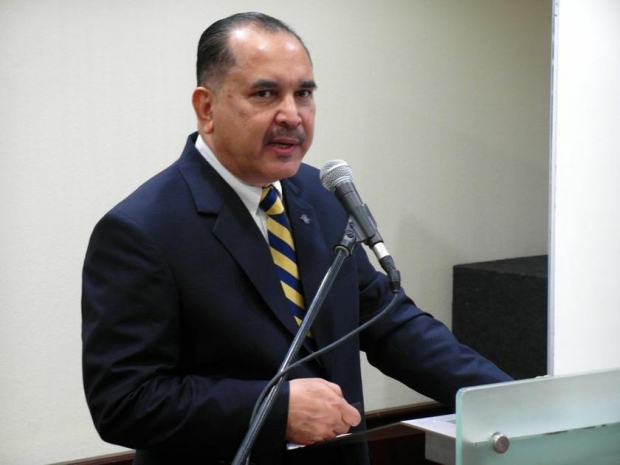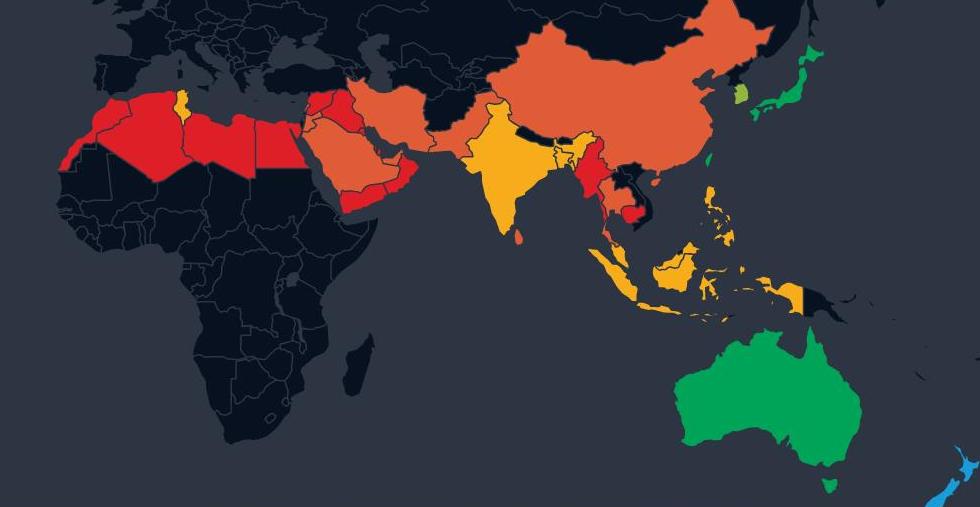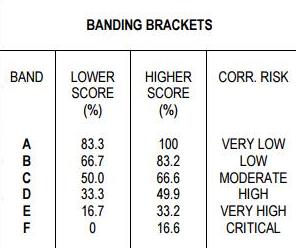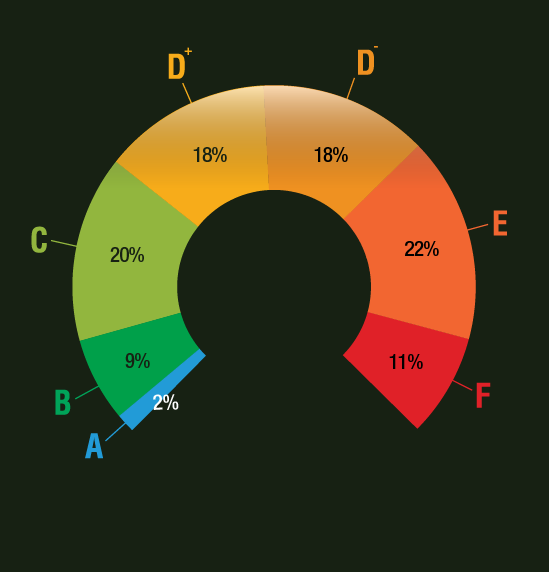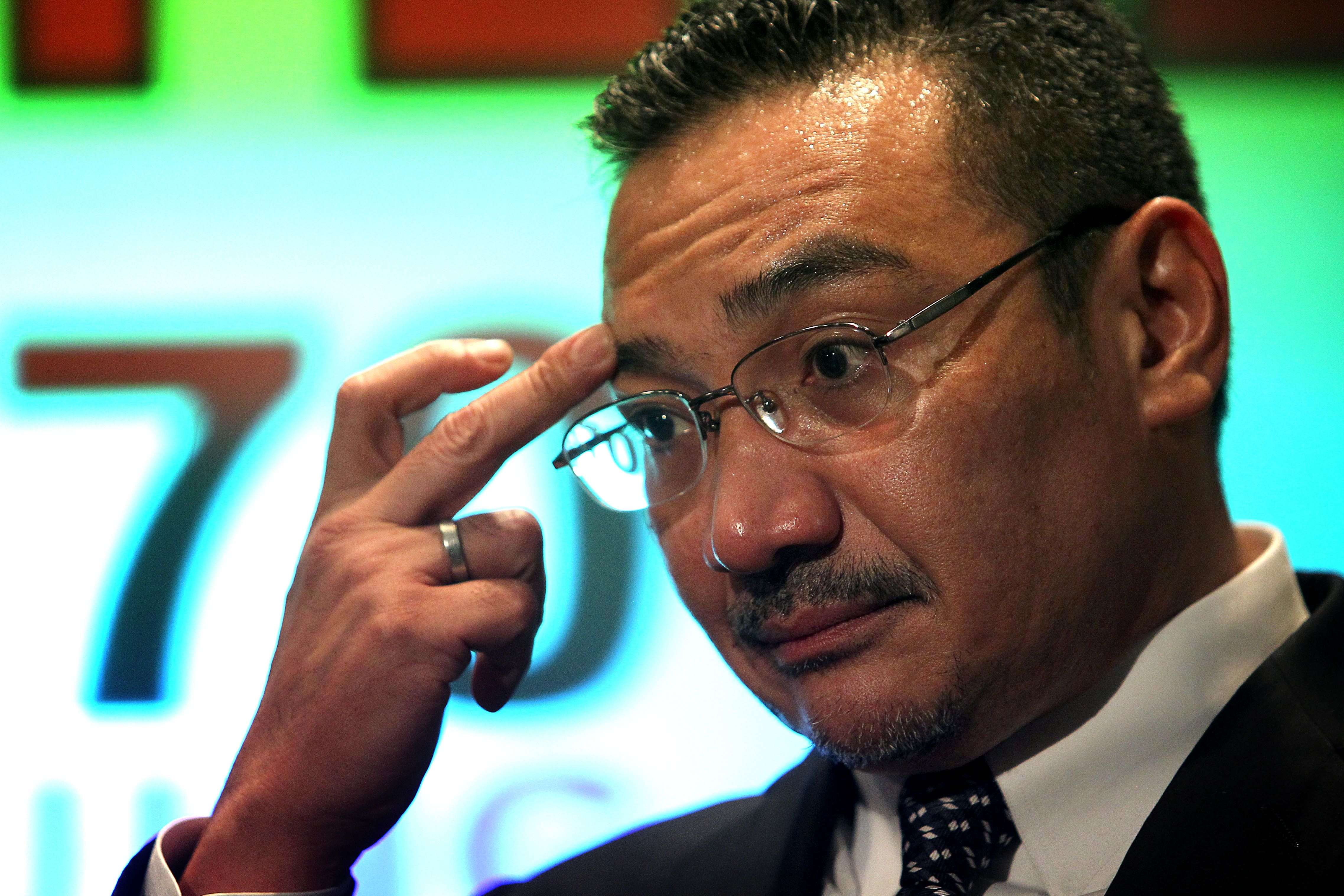How Did Malaysia Get A 'D' In The Global Defense Corruption Survey?
Transparency International's corruption risk survey reveals the seriousness of corruption risk in Malaysia's defense ministry.
Malaysia recently scored a 'D' in Transparency International's Government Defense Anti-Corruption Index, indicating that the nation is at a high risk of corruption in its defense sector
The Malaysian chapter of the global anti-graft body, Transparency-International Malaysia (TI-M), expressed concern with Malaysia’s score in the Government Defence Anti-Corruption Index (GI 2015), despite the country doing slightly better than the previous GI 2013 survey in which Malaysia scored a “D-”.
“With formal regulations governing the actions of military personnel and independent investigative organisations like the Malaysian Anti-Corruption Commission (MACC), Malaysia is in a good place to build its anti-corruption framework,” TI-M president Datuk Akhbar Satar said in a statement today.
What is the Government Defense Anti-Corruption Index (GI)?
The colors of the country indicates the grades that the country was branded with under the anti-corruption index
Image via Government Defense Anti-Corruption IndexAn analysis by the global corruption watchdog, Transparency International (TI), measures the level of corruption risk in 82 countries across the globe to shed light on the risk levels of corruption in each country's defense and security ministry.
Each country's government is assessed in five main areas of risk in security and defense sector, namely, political, financial, personnel, operations, and procurement risk.
According to the 2015 survey results, New Zealand was the only country placed in the "A" risk band, while Singapore, Australia, Taiwan and Japan are grouped in the "B" risk band.
defenceindex.orgAccording to Transparency International (TI), these categories are closely related to the defense and security department, thus when assessed, TI would be able to estimate the corruption risk levels of a nation's defense ministry
These are the five different areas assessed to determine the corruption risk levels in security and defense ministry:
Political risk studies the risk of defense legalisation and laws being influenced or compromised by corruption.
Financial risk involves the potential abuse of defense budgets or income being misused.
Personnel risk comprises corruption among defense ministry personnel or armed forces.
Operations risk is corruption that may occur during military operations both home and abroad.
Procurement risk involves corruption that occurs when purchasing defense equipment.
How are the five key factors assessed?
The study grades the governments with grades ranging from A-F (from low to critical corruption risks).
Very few countries usually make it to the top two grades, most countries usually swing between the bottom three grades.
The countries are graded according to its level of transparency and the measures taken to lessen any corruption risk that arises.
The last time TI ran this survey, Malaysia scored a D- and two years later, this year, the country's score has elevated to a D, which means that we still have a high risk of corruption in the defense and security sector
Malaysia's best score, a 'C', was for the personnel sector, which indicates that there is a moderate risk of corruption among defense ministry and armed forces personnel.
We scored the lowest for the operations risk, an 'E', which translates into a very high risk of corruption in military operations either domestic or international.
As for procurement, financial and political risk, Malaysia scored a 'D', indicative of high risk of corruption in these three different areas.
Why are such high levels of corruption risk in Malaysia's defense and security ministry worrying?
A country's defense sector is its protective shield against all harmful forces, both external and internal. If corruption is allowed to grow or is left unheeded in this area, then it not only wasteful of the government's funds but is also dangerous for the people living in the country.
Corruption can pave the way into treachery and mistrust and eventually affect the efficiency of the defense and security department of a nation.
A country that has a weak defense and security department puts the country at risk of being penetrated by other countries or external forces.
What can Malaysia do to decrease the high level of corruption risk in its defense ministry?
1) Strengthen Legislative Scrutiny
We recommend that the government establish a parliamentary committee tasked specifically with oversight of all aspects of the defense and security sector. This committee should have the power to access to a fully detailed defense budget and internal audit reports; be able to call expert witnesses and scrutinise defense agencies and institutions; meet regularly and publish reports on its activity.
2) Enhance Budget Transparency
We recommend that the government publish an annual defense budget that includes detailed information on expenditure across functions including research and design, training, salaries, acquisitions, disposal of assets, maintenance and personnel expenditures and appropriately lengthens the time that budget items can be discussed by the Parliament.
3) Increase Anti-Corruption Measures Across Operations
We recommend Malaysia adopts an operational doctrine which specifically recognises corruption risks as a strategic operational issue; provides comprehensive and systematic training and guidance for commanders and personnel on corruption risks faced in operations, including in contracting, and deploy trained professionals capable of monitoring corruption in the field who regularly report while on mission, with these reports made available to the public, at least in summary form.
Meanwhile, during the 16th International Anti-Corruption Conference (IACC), Malaysia's recent corruption scandals with even TI's chief Jose Ugaz criticising PM Najib for his poor handling of the rising corruption issues here:
